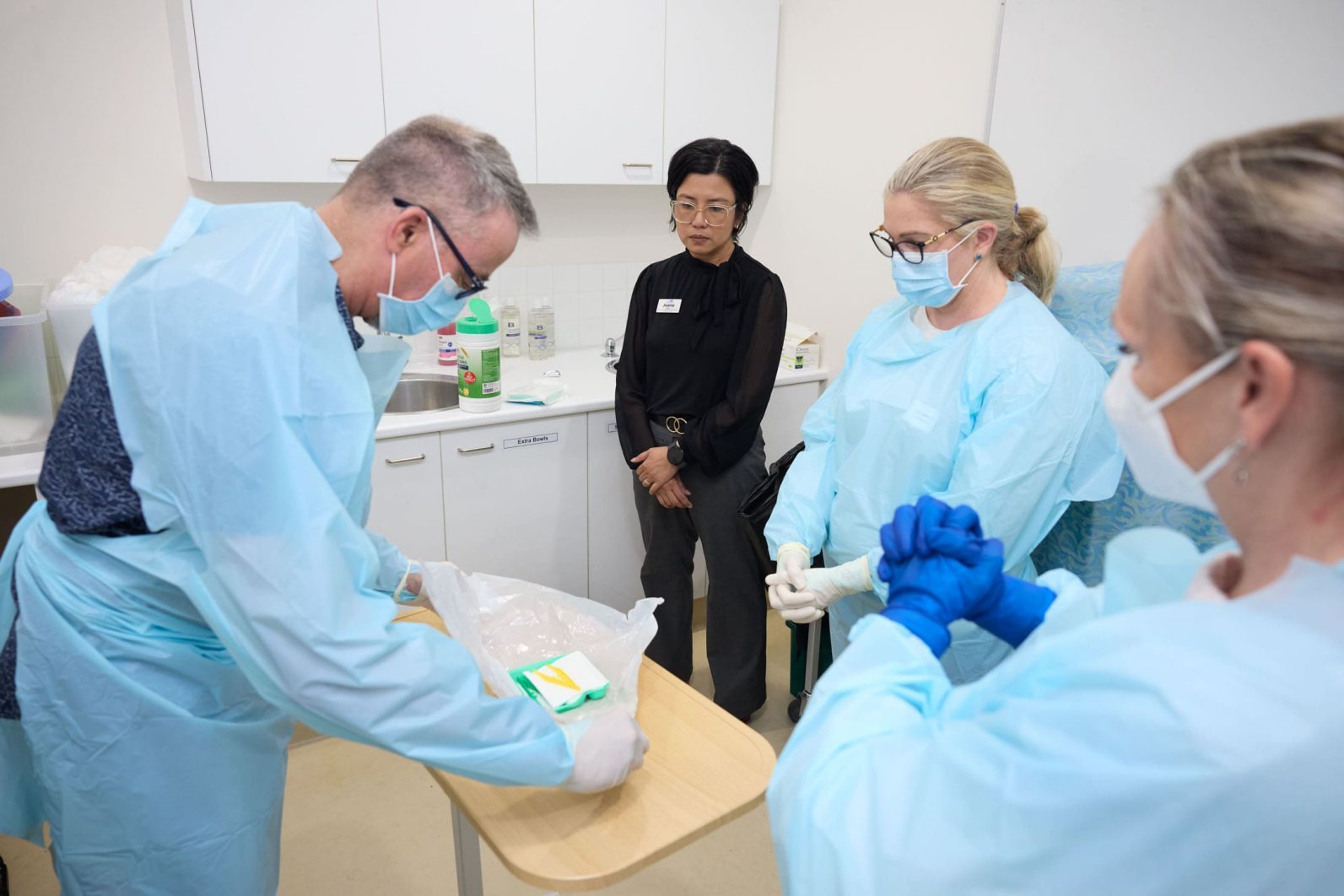News
Ensuring the highest standards

Organisational
It’s Infection Prevention and Control (IPC) Week and time to pay tribute to the enormous amount of work that goes on behind the scenes in keeping our customers safe.
While in reality, every week is ICP Week here at Uniting AgeWell. It is important to use this opportunity to highlight the rigorous protocols, learning and training in place to ensure that the older people we serve are given the highest level of care and protection possible.
The theme for the week which runs from October 19-25 is ‘Stand UPP for IPC’. It stands for:
- Unite – everyone needs to work together
- Prevent – implementing proactive measures to stop infections before they start
- Protect – the importance of safeguarding customers, families and the healthcare workforce
- Prevail – encourages resilience and victory in the ongoing fight against infection.
The week is supported by the Australasian College for Infection Prevention and Control (ACIPC), in partnership with the Australasian Society for Infectious Diseases (ASID).
Overseeing that high safety standards are met across Uniting AgeWell is Sophie Legge, General Manager Quality & Risk. Sophie says these standards underpin the care we provide to ensure not only what we deliver but how it is delivered, is safe and best practice.
Sophie also highlights the importance of building resilience and maintaining vigilance in infection prevention and control. “Resilience is key in the ever-changing and vulnerable aged care environment,” she explains. “It helps us keep up with constantly evolving challenges, mitigate risks, and ensure the highest standards of care, protecting our customers’ health.”
There are a number of protocols, learning and training in place:
- There are Infection Prevention Control Leads at every residential site who continue raising awareness around infection prevention and control. These include competencies in Hand Hygiene and Aseptic Technique and best practice in antimicrobial stewardship, hotel services and so forth.
- There is Be Your Best (BYB) training modules in Infection Prevention and Control which are mandatory for all staff.
- There are also toolbox sessions on many topics including Antimicrobials, Hand Hygiene, Infection Control in hotel services and importance of Immunisation, to name but a few.
There have been a number of key sessions this year across the organisation to cover infection control including:
Infection, Prevention & Control (IPC) Lead Days: A total of 53 participants in two full day workshops in March and April (one in Victoria and one in Tasmania). These provided valuable insights, and enhanced IPC Lead understanding of IPC best practices and areas for improvement in infection control. It was based on the theme “Building Resilience.”
Nurse Development Program: This saw 11 workshops (seven in Victoria and four in Tasmania) training 402 participants from April to October. The one-day workshops specifically aimed to upskill UA nurses across the organisation in their current practice, focusing on several key areas: clinical governance, dementia care, infection control, strengthened standards, the Aged Care Act, and customer service provision.
Delivered across various venues in Melbourne, Hobart, and Launceston, the workshops have been met with high satisfaction. A significant majority of nurses found the content relevant and the program length appropriate. Key strengths highlighted by participants include the quality of presenters and the practical applicability of certain sessions, particularly ‘Customer Service’ and ‘Strengthened Standards.’
Care Staff Development Program (CSDP): A total of 25 sessions (17 in Victoria and 8 in Tasmania) ran from April and continue until the end of October. So far 562 have attended the sessions, with 38 attending the sessions on 27 and 28 October. This will bring the total number of attendees for this year to 600. The one-day in-person workshop is designed to empower care staff by enhancing their skills and knowledge. Topics covered include:
- Strengthened aged Care Standards – how they apply to care staff role
- Customer Service – communication skills, professional boundaries, navigating challenging areas of care such as mental health, trauma informed care, and sexuality and intimacy in aged care
- Nutrition, weight loss and the dining experience
- Holistic Care – recognising deterioration and escalation.
Home Care RN Upskill Workshops: A full day workshop in Victoria was run on two separate occasions – in September and in October – and was attended by 25 RNs from Victoria and Tasmania. This workshop provided a valuable opportunity to refresh essential clinical competencies and participate in hands-on skills training within a supportive, face-to-face setting. It was purposefully timed to coincide with the introduction of the Support at Home Care program, which will shape how care is delivered in the community, and is underpinned by key principles including person-centred care, trauma-aware practice, cultural safety, and clinical governance. The workshop also included infection prevention and control – Aseptic Technique and hand hygiene competencies.
Urinary Catheter Insertion Pilot: The workshop was held at Strath-Haven in Bendigo in September with 8 RNs attending. The course was to improve practice in catheter care, including importance of competent aseptic technique and hand hygiene.








